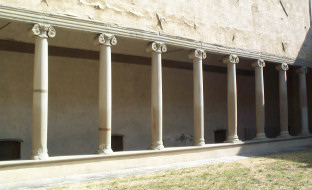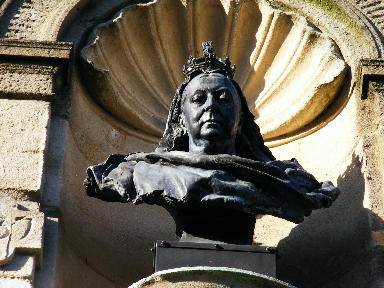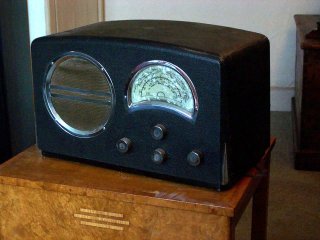Theory - DEFINITION
| is abstract argument, generalising, deliberating and speculating |
| maps the terrain of the subject area |
| joins up speculation and the practical, including the collecting of data (empiricism) |
| is interdisciplinary |
| produces a methodology, a way of working from linked concepts |
| is reflexive by questioning the most basic of its premises (foundationalist issues) and the subject territory |
|
Theory is an attempt to identify general properties which explain regularly observed events. The construction of theories forms an essential element of all research. While theories tend to be linked to broader theoretical approaches (see methodology below), they are also strongly influenced by the research results they help generate (contrast the sciences and the social sciences, and the humanities). [Anthony Giddens, Sociology. London: Polity Press, 1997:586] |

|
Theory attempts to: · be coherent and systematic Theory is different from: · criticism methodology a way of working which seeks to be coherently related to certain theoretical premises and to systematically linked concepts and propositions methodological triangulation - the simultaneous use of many
approaches to the same problematic or phenomenon central method for mapping the terrain Archaeology of knowledge Hypothesis [Tony Bilton et al., Introductory Sociology, 3rd edition. London, Macmillan, 1996:661] Paradigm For Kuhn, paradigms produce forms of scientific knowledge which appear to be objective, but which in reality reflect very specific sets of interests. [Tony Bilton et al., Introductory Sociology, 3rd edition. London, Macmillan, 1996:666] Reductionism [Tony Bilton et al., Introductory Sociology, 3rd edition. London, Macmillan, 1996:668]
Research Methods Numerous different research methods exist in sociology, but perhaps the most commonly used are fieldwork (or participant observation) and survey methods. For many purposes it is useful to combine two or more methods within a single research project. [Anthony Giddens, Sociology. London: Polity Press, 1997:584] |

| Epistemology |
| Oculocentrism or ocularocentrism |
| audiences (reception theory) |
| Semiotics |
| Radio theory - what is it for? What is it? |

|
DIALOGUE NOT POLEMICS 'An Uncritical Summary of an Interview with Michel Foucault' at http://everything2.com/title/Polemics%252C%2520Politics%252C%2520and%2520Problemizations Foucault is opposed to the polemical trend in academia for a number of reasons. This is mainly due to the fact that polemics are, by definition, "an obstacle to the search for truth" (382). This is because the polemicist presupposes and self-legitimates a position from which to attack their 'opponent'. So, rather than questioning what a certain position means and how it works within a specific situation, the polemicist assumes that such a position is unassailable and attacks any perceived threat. Foucault is more interested in the form of a dialogue, a discussion or an interview. Rather than presupposing the end of the debate, the dialogue works toward a mutual discovery of the truth. Unlike the polemicist who "tells the truth in the form of his judgment and by virtue of the authority he has conferred on himself" (382), the parties of a dialogue play a mutual game; "questions and answers depend on a game-a game that is at once pleasant and difficult-in which each of the two partners takes pains to use only the rights given him by the other and by the accepted form of the dialogue" Rabinow, Paul, ed., The Foucault Reader, Pantheon Books, New York, 1984, 381-382 |

|
REFERENCES - USEFUL GUIDES TO THEORY Barker, Martin, 2000, From Antz to Titanic. Reinventing Film Analysis, London: Pluto Press. Barry, Peter, 1995, Beginning Theory. An introduction to literary and cultural theory, Manchester: Manchester University Press. Howard S. Becker, 'Theory: The Necessary Evil' Berger, Arthur Asa, 1995, Cultural Criticism. A Primer of Key Concepts, London: Sage. Bradford, Richard, ed., 1999, The State of Theory, London: Routledge. Peter Brooker, A Concise Glossary of Cultural Theory, 1999, London: Arnold. Buckland, Warren, 1998, Teach Yourself Film Studies, London: Hodder & Stoughton. Dani Cavallaro, Critical and Cultural Theory. Thematic Variations,
2001 London: Athlone Press. Greetham, D.C., 1999, Theories of the Text, Oxford: Oxford University Press. Hayward, Susan, 2000, Cinema Studies: The Key Concepts, London: Routledge. Stam, Robert, Burgoyne, Robert and Flitterman-Lewis, Sandy, 1992, New Vocabularies in Film Semiotics: Structuralism, Post-Structuralism and Beyond, London: Routledge. Robert Stam, Film Theory. An Introduction, 2000, London: Blackwell. Storey, John, 1998, An Introduction to Cultural Theory and Popular Culture, Prentice-Hall. Frank Webster, Theories of the Information Society, 1995, London: Routledge. |
See FORMALISM
Continuing through the site: Voice
Theoretical issues & writing-up your project
|
|

|
|



